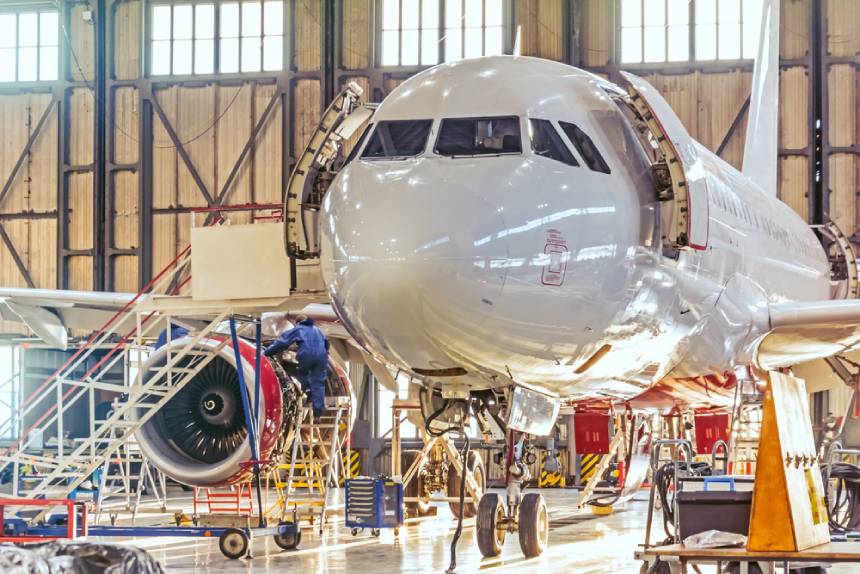Navigating the intricate landscape of aerospace regulatory compliance is a formidable challenge for manufacturers in this sector. The complexities of adhering to stringent regulatory standards require a robust and efficient system. This is where Enterprise Resource Planning (ERP) comes into play.
ERP systems are not just about managing business operations; they are crucial in ensuring compliance with the ever-evolving regulatory requirements of the aerospace and defense industries. By leveraging ERP solutions, aerospace manufacturers can streamline their processes, ensuring they meet quality standards while maintaining operational efficiency.
Understanding Aerospace Regulatory Compliance
Regulatory compliance in the aerospace industry is a critical aspect that encompasses a broad spectrum of standards and practices. These regulations are designed to ensure the highest levels of safety, quality, and efficiency in aerospace manufacturing. From managing raw materials to overseeing the entire production process, compliance touches every facet of the aerospace business.
For aerospace manufacturers, meeting these regulatory standards is not just about fulfilling legal obligations; it’s about affirming their commitment to aerospace safety and compliance. Failing to comply can have severe repercussions, including financial penalties and reputational damage. Therefore, understanding and managing these regulatory requirements is vital for the sustainability and success of any aerospace company.
ERP Solutions and Aerospace Compliance
ERP solutions play a pivotal role in aiding aerospace companies to achieve and maintain regulatory compliance. By integrating various business processes into a unified system, ERP facilitates a seamless flow of information across different departments. This integration is crucial for ensuring that all aspects of aerospace manufacturing adhere to the required regulatory standards.

Aerospace compliance with ERP means having real-time visibility into every operation, from supply chain management to the final inspection of products. This visibility is essential for making informed decisions and taking proactive measures to ensure compliance. Additionally, ERP systems help in standardizing processes across the organization, thereby reducing the likelihood of errors and ensuring consistent adherence to quality standards.
ERP Strategies for Aerospace Regulatory Compliance
Developing effective ERP strategies for aerospace regulatory compliance involves several key components. First, it’s essential to choose a cloud-based ERP system. Cloud-based solutions offer greater flexibility, scalability, and accessibility, which are crucial for managing the complex and dynamic nature of aerospace regulatory requirements. These systems provide real-time data and analytics, enabling aerospace manufacturers to make informed decisions quickly and efficiently.
Project managers play a crucial role in implementing ERP strategies. They ensure that the ERP system is tailored to the specific needs of the aerospace industry, including compliance management. By effectively managing the ERP implementation project, they help streamline operations and integrate various business processes, ensuring seamless adherence to regulatory standards.
Another critical aspect of ERP strategies is the continuous monitoring and updating of the system to align with the latest regulatory changes. The aerospace industry is known for its rapid technological advancements and evolving regulatory landscape. Hence, an ERP system that can adapt and update per these changes is indispensable for ensuring ongoing compliance.
ERP strategies in the aerospace sector are not just about implementing a technology solution; they’re about creating a comprehensive approach to managing regulatory compliance efficiently and effectively.
Challenges and Solutions in ERP Implementation
Implementing ERP systems in the aerospace industry is not without its challenges. One of the primary hurdles is the integration of ERP with existing business processes. Aerospace manufacturers often have complex, established workflows, and integrating a new system requires careful planning and execution. Another challenge is ensuring that the ERP system stays up-to-date with the latest regulatory standards and industry advancements.
To overcome these challenges, aerospace companies need to adopt a flexible and adaptable ERP solution, preferably cloud-based, to ensure easy updates and scalability. Training and change management are also crucial to ensure that employees are equipped to use the new system effectively.
ERP as a Tool for Streamlined Operations and Compliance Management
ERP systems in the aerospace industry serve as more than just compliance tools; they are enablers of streamlined operations. By automating key processes, ERP systems reduce manual labor, minimize errors, and increase efficiency. This automation extends to compliance management, where ERP systems can track and ensure adherence to regulatory requirements in real time. The ability of ERP to provide real-time data and analytics also plays a crucial role in this aspect, allowing aerospace manufacturers to make informed decisions quickly and respond to any compliance-related issues with agility.
The Future of ERP in Aerospace Compliance
The future of ERP in maintaining aerospace compliance standards looks promising, with continuous innovations and advancements in technology. The integration of advanced analytics, Artificial Intelligence (AI), and the Internet of Things (IoT) with ERP systems is set to take compliance management to new heights. These technologies will provide deeper insights into operations, predictive analytics for compliance risks, and more automated compliance processes.
As the aerospace and defense industries continue to evolve, ERP systems will also need to adapt, offering more sophisticated, comprehensive, and agile compliance solutions.
Conclusion
The role of ERP in maintaining aerospace regulatory compliance cannot be overstated. In an industry where safety and compliance are paramount, ERP systems provide the necessary framework and tools to ensure that aerospace manufacturers meet rigorous regulatory standards.
From streamlining business operations to providing real-time data for informed decision-making, ERP solutions are indispensable for aerospace companies. As technology continues to advance, ERP systems will become even more integral to managing compliance in the ever-evolving aerospace sector. Investing in a robust, adaptable ERP solution is not just a strategic move for operational efficiency—it is a critical step in upholding the high standards of quality and safety that define the aerospace industry.
